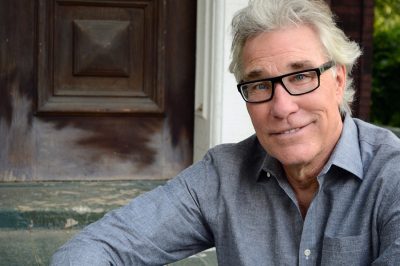
Michael Joseph Lyons spent his childhood traveling around the world as he moved with his family. Lyons spent time as a military brat in post-World War II Asia and Europe, and as an adult, Lyons used his experiences to write his new book “BRAT and the Kids of Warriors.”
In the book, Boston University alumnus Lyons, who graduated in 1977, tells the fictional story of a family stationed in West Germany in 1957.
Written for children, “BRAT and the Kids of Warriors” chronicles the lives of the McMasters children — Jack, Queenie and Rabbit.
“Military brat” refers to the children of military personnel with one or both parents serving in the United States Armed Forces. According his website, Lyons wrote that his book and other works about life as a military brat aim to provide Americans from non-military families with insight into the lifestyle.
Lyons said the three kids at the center of the story are whisked away from their home in Texas to the faraway city of West Berlin, where they experience things that are new and exciting just on the edge of the Soviet Union.
In 1957, World War II was recent history. The Nazi threat had been replaced by a Soviet one, and in the post-war world, another threat loomed in the form of the Cold War.
David Mayers, professor in BU’s history and political science departments, said that following World War II, there was a widespread positive outlook stemming from emotional relief.
“There was … enthusiasm for a post-war order,” he said. “But very quickly, this optimism died out and [was] supplanted by a Cold War gloom, not only in the United States but throughout Europe.”
The McMasters siblings, like many other baby boomers throughout this country, were raised on the lore of the Second World War, which their fathers not only fought in, but also actively helped win. They thought that kind of violence was something of the past, a historical relic, according to Lyons.
“They’re thinking they are there to keep the Nazis from coming back,” Lyons said, “only to realize that what’s really happening is that there’s 3,000 Soviet tanks pointed from across the Iron Curtain at them. Only then does it dawn on them that it’s our tanks against their tanks.”
Maaha Rafique, a sophomore in the College of Arts and Sciences, said she doesn’t personally know much about the lives of military brats but could learn from a book like Lyons’s.
“I don’t really know … what they go through, but it seems like it would have to be a difficult life to adjust to a lot of different environments and homes,” Rafique said.
Lyons said the need for a brat to cope with new situations regardless of anxiety is “gritty.”
“You don’t just roll up in a little ball and get depressed and think your life is over,” he said. “What military kids learn is that this sense of loss or sense of failure is not a permanent condition and that they will get themselves back to where they have friends and where life is good. They’re resilient.”
He said that although learning to fit in to a whole new culture was challenging, it was even harder trying to fit in once back at home.
“I found the hardest cultures to ever break into were back in America,” Lyons said.
Lyons explained that being the new kid in a big suburban high school was difficult because the students already knew each other and their place in “the pecking order.” The environment seemed a great deal more daunting than learning how to be French, he said.
As an adult, Lyons said he takes pride in his identity as a brat.
“It’s like a badge of honor,” he said.
“BRAT and the Kids of Warriors” will be released Nov. 1.

















































































































Lorraine M. Davis • Oct 24, 2018 at 5:14 pm
Michael Lyons is a natural storyteller. What sets “Brat and the Kids of Warriors” apart from most books about brat life is the exciting plot overshadowing the so-that’s-what-it’s-like moments.